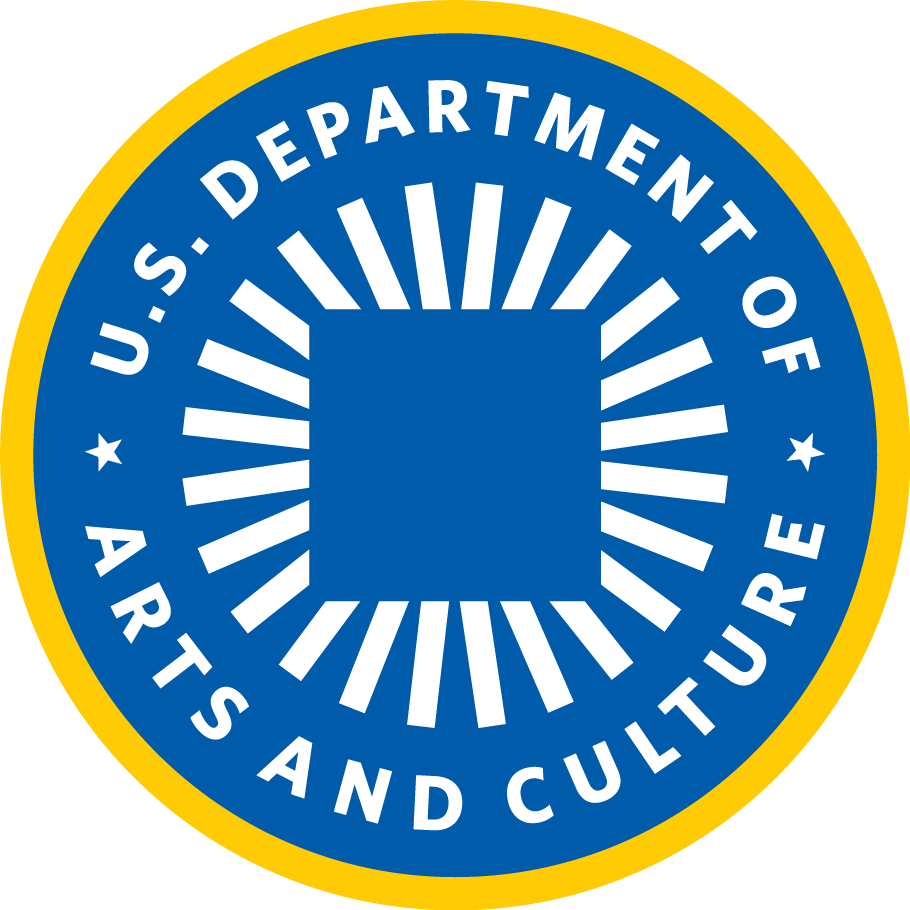By Arlene Goldbard, Chief Policy Wonk
#RevolutionOfValues 2018, the second USDAC National Action honoring Dr. Martin Luther King, Jr.’s memory and message, just launched. What #RevolutionOfValues is needed now? #WhatWillYouStandFor? And how will you stand: by performing Dr. King’s words, making visual art that embodies his message, bringing people together to share resonant stories of what needs doing and what has been accomplished? The free downloadable Toolkit offers guidance on all of these.
These questions are especially poignant when we consider Dr. King’s courage in standing on April 4, 1967—one year to the day before he was assassinated—to deliver a talk entitled “Beyond Vietnam: A Time to Break Silence” at a meeting of Clergy and Laity Concerned about Vietnam, held at Riverside Church in New York City.
The silence Dr. King was moved to break had been imposed by people who told him, “‘Peace and civil rights don’t mix,’ they say. ‘Aren’t you hurting the cause of your people?’ they ask.’” That night, he responded with unparalleled eloquence and power: “We are called to speak for the weak, for the voiceless, for victims of our nation and for those it calls enemy, for no document from human hands can make these humans any less our brothers.”
That night fifty-one years ago, Dr. King named three forces of domination that have persisted and been opposed this half-century:
[W]e as a nation must undergo a radical revolution of values. We must rapidly begin the shift from a “thing-oriented” society to a “person-oriented” society. When machines and computers, profit motives and property rights are considered more important than people, the giant triplets of racism, materialism, and militarism are incapable of being conquered.
A Spoken-Word Artist for The Ages
Dr. King’s remarkable oratory—so eloquent and unflinching—reminds us of the power of the word in the service of love and justice. He was many things, but one that isn’t often mentioned is this: a spoken-word artist for the ages. Many of the actions described in the #RevolutionOfValues Toolkit invite you, Citizen Artist, to follow in his footsteps. What #RevolutionOfValues is needed now? #WhatWillYouStandFor?
For the USDAC, #RevolutionOfValues resonates with our core aim of culture shift, a paradigm shift from an old, inadequate understanding to one which captures our real challenges and possibilities. Citizen Artists are working for a shift from a consumer culture to a creator culture, from a policy based on privilege to a cultural democracy—a true #RevolutionOfValues.
What is yours? The Toolkit gives instructions for submitting art for the gallery and uploading images and texts to social media, as well as planning and hosting #RevolutionOfValues events. Start planning now!
What Can #RevolutionOfValues Do?
Taking part in a National Action can build awareness and mobilize action in your community. It can connect you with Citizen Artists and groups across the U.S. who share your values and hopes. And it can inspire others in ways you never dreamed.
For instance Did you read about The Kudzu Project here this past December? Guerilla knitters in Charlottesville, VA, were inspired by a postcard created by Citizen Artist Dave Loewenstein for last year’s #RevolutionOfValues. Scroll down on this page to see and download a gallery of images created last year, including Dave’s “Defunct Monument” series, then follow the Toolkit instructions to submit your own. Who knows what your vision could catalyze?
Renewing History, Renewing Possibility
Why are we focusing on things that happened half a century ago? What does that have to do with today? The wise and great writer John Berger put it beautifully:
History always constitutes the relation between a present and its past. Consequently fear of the present leads to mystification of the past. The past is not for living in; it is a well of conclusions from which we draw in order to act.
There are plenty of people out there mystifying—whitewashing—Dr. King’s history out of fear of a present in which in growing numbers are calling for the true revolution of valued he espoused. There has been a movement to #ReclaimMLK from the “innocuous rituals of civic engagement” his birthday celebrations have become, reviving his radical message. #RevolutionOfValues is part of that movement.
I like to visualize each of us as a link in a chain of souls, the connector between three past generations and three generations into the future. Everything we find worth knowing comes to us as part of the legacy inherited from the dead, sharpened to speak to the present. What will you find worth teaching to the next generation, who will teach the next, who will teach the next? #WhatWillYouStandFor?
As part of last year’s #RevolutionOfValues, USDAC folks made a video in which each of us spoke a few lines excerpted from the Riverside speech (scroll down and you’ll see it on this page). Cultural Agent Emmet Phillips takes his responsibility to future generations very seriously. Using that same script (available in the #RevolutionOfValues public folder you’ll be able to access when you download the Toolkit) he made a video with young people from the Children and Family Urban Movement in Des Moines, IA, where he works. Here’s a link to the video on Facebook: watch it and be inspired!

